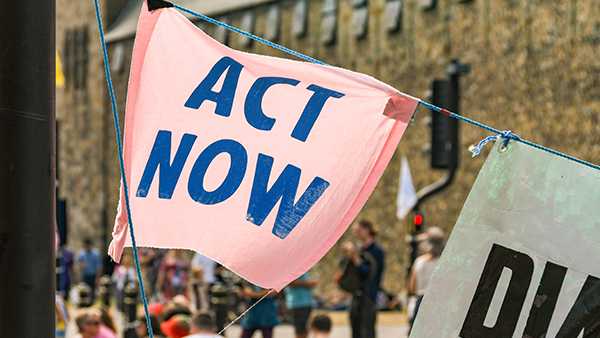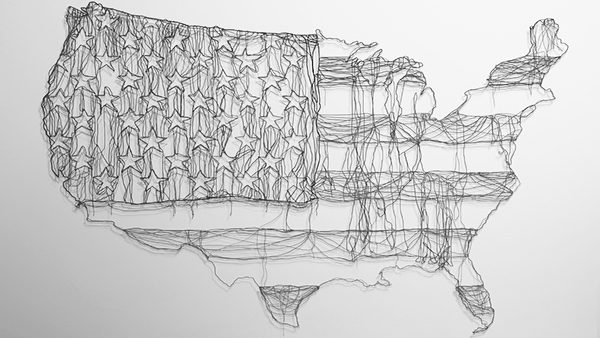The world is full of ironies – perhaps the election campaign will be enlightening after all.
The closing chapter of the election story has begun but with four months until we reach the denouement, most of the audience is already transfixed with boredom. It is like a cycle pursuit race where the competitors go round and round zigzagging the track to little effect, looking nervously over their shoulders, while most of us take little or no interest until the final dash for the line.
Yet in Monday’s entirely predictable, largely pointless, activities there were reasons to think things might have to change. It is unlikely media and public opinion will tolerate another 13 weeks of dodgy dossiers, glib posters, crude caricatures and windy rhetoric. Like a pair of middle aged DJs, the Parties on Monday tried out their favourite hits and instead of being greeted by a jostling dance floor of excited journalists, their tunes were drowned out by a collective public groan. We want to hear fewer golden oldies and more new material.
Indeed, as the two big parties search for the crucial, elusive, two or three extra percentage points of voters they need, they may have reason, even at this late stage, to revise their strategy.
In any complex, dynamic contest the success of a move by one side depends on the scope of the other side to respond. In essence the Conservative pitch for 2015 was wholly predictable from the day after the Coalition was formed in 2010 with an extra ingredient added by the election of a new Labour leader: ‘Britain’s on the road to recovery, don’t let the people who created the mess get back in to office, especially as they are led by someone not up to the job’. The Conservatives still believe sooner or later this message will work for them.
There are two problems. First, while this message may damage Labour, it hasn’t so far done anything to get the Conservatives through the reinforced glass ceiling of 32 percent voter support. Second, Labour has had a lot of time to prepare its response. Ed Miliband’s performance on Monday was little more than competent and Labour’s policies still don’t add up, but Labour’s leader was at his most effective when attacking that core Conservative message as being both complacent and negative. If this attack sticks and Conservative spokespeople find that any talk of recovery is seen as evidence of being out of touch, the Tories might find it difficult to learn another tune in time for it to be heard by May.
Because Labour’s message has been far less consistent they may have more scope to develop it further. In writing a few days ago about appealing to the centre ground it seemed that Ed Balls might be signalling a change of strategy. But Miliband’s core message remains the same, reflecting his own convictions: ‘the fundamental problem for Britain is inequality and the key task for Government is to redistribute power and wealth from the few to the many’. Miliband sees most of society as the oppressed; recall how the underlying theme in all the case studies with which he dotted his 2014 conference speech was that – in the end – everyone, apart from Tories and fat cats, is a victim.
Of course, inequality is big social and economic problem for Britain and not just for those at the bottom, but, as Danny Finkelstein writes this morning, the Labour message has its own problems. On the one hand, most people – however hard their lives – do not see themselves as victims whose problems are fundamentally a function of the success of others. Second, if redistribution is the biggest priority, it demands extending the size and power of the redistributing agency – namely the central state; not a prospect that attracts many voters beyond committed social democrats.
In short both major parties are stuck with messages which are failing to reach out beyond their core constituencies. Right now they are adopting the response to not being understood of the Englishman abroad – waving their arms and shouting.
When we think about organisations – like political parties – it is often as lumbering beasts with a single mind to make up. In fact in the highest councils of these bodies there is usually a small group with different views vying for attention. In this group there will tend to be someone who consistently argues for a different, more experimental approach. When I was briefly involved in the campaign centre I tended to be this voice suggesting, for example, being more authentic and discursive, less predictable and adversarial. I was nearly always ignored and – I suspect – nearly always wrong.
But as the parties see the disdain with which their New Year campaign launches were received and as the polling returns once more confirm the limited appeal of their message beyond the already decided, maybe the voices calling for something different might start to get a fuller hearing. Those of us who would like an election campaign that goes beyond cynical pantomime can only hope so.
Related articles
-
The public are ready to go further and faster on net zero
Anthony Painter
The public are ahead of policy-makers and, indeed, most of the business world. COP26 is an enormous opportunity to catch up. Global leaders should take it.
-
Can progressives ever stop the in-fighting?
Matthew Taylor
Biden's victory has caused the left and moderates to fracture again.
-
Can President Biden bring America together again?
Anthony Painter
There is a long road ahead for the new president.




Be the first to write a comment
Comments
Please login to post a comment or reply
Don't have an account? Click here to register.